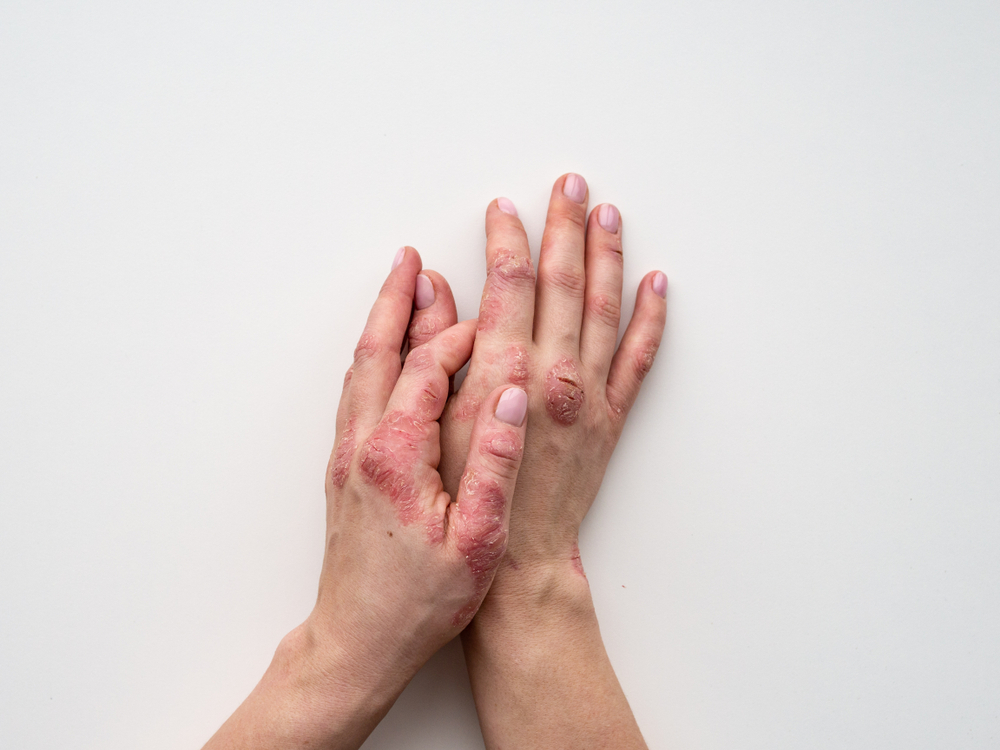 Psoriasis is technically an autoimmune disease, and mostly thought to be caused by a combination of genetics and environmental factors. Autoimmune diseases occur when your body’s immune system overreacts and attacks healthy cells. When it comes to psoriasis, the result is an overproduction of skin cells that causes patchy, scaly skin.
Psoriasis is technically an autoimmune disease, and mostly thought to be caused by a combination of genetics and environmental factors. Autoimmune diseases occur when your body’s immune system overreacts and attacks healthy cells. When it comes to psoriasis, the result is an overproduction of skin cells that causes patchy, scaly skin.
Psoriasis is not contagious. You can’t catch it from somebody else.
Oftentimes a triggering event sets off the first outbreak of psoriasis or sets off flare-ups throughout your life. Triggers may include:
- Stress
- Infections
- Cold, dry weather
- Heavy drinking
- Smoking
- Exposure to secondhand smoke
- Injuries
- Certain medications
You may also be at an increased risk for psoriasis if other people in your family have this skin condition. Severe stress is another risk factor, since stress taxes your immune system.
So What Can You Do About Psoriasis?
There is no single cause of psoriasis that you can avoid or eliminate from your life, but, if you have this skin condition, there are treatments that will help to alleviate the symptoms and the severity of the outbreaks.
First, you can work to identify and eliminate the triggers that cause psoriasis. These triggers tend to be different for everyone. You may have some idea of what seems to set off a flare up, or you may want to keep a journal for several months to record triggers. Something like an increase in stress, alcoholic beverages, smoking, or certain medications may be associated with worsened symptoms.
Next, talk to board-certified dermatologist Dr. Steven Greene about treatment options. After examining your skin and learning about your health and psoriasis history, Dr. Greene will be able to determine whether a topical or oral medication may be the right way to help manage psoriasis symptoms. There’s still no cure for this skin condition, but there are ways to reduce its impact on your daily life and increase your comfort.
Get Answers From An Experienced Dermatologist
If you struggle with psoriasis and want to know what your options are for managing it, please call Advanced Dermatology and Laser Institute in Seattle at 206-402-4797. We look forward to answering your questions and arranging a consultation for you with Dr. Greene.
